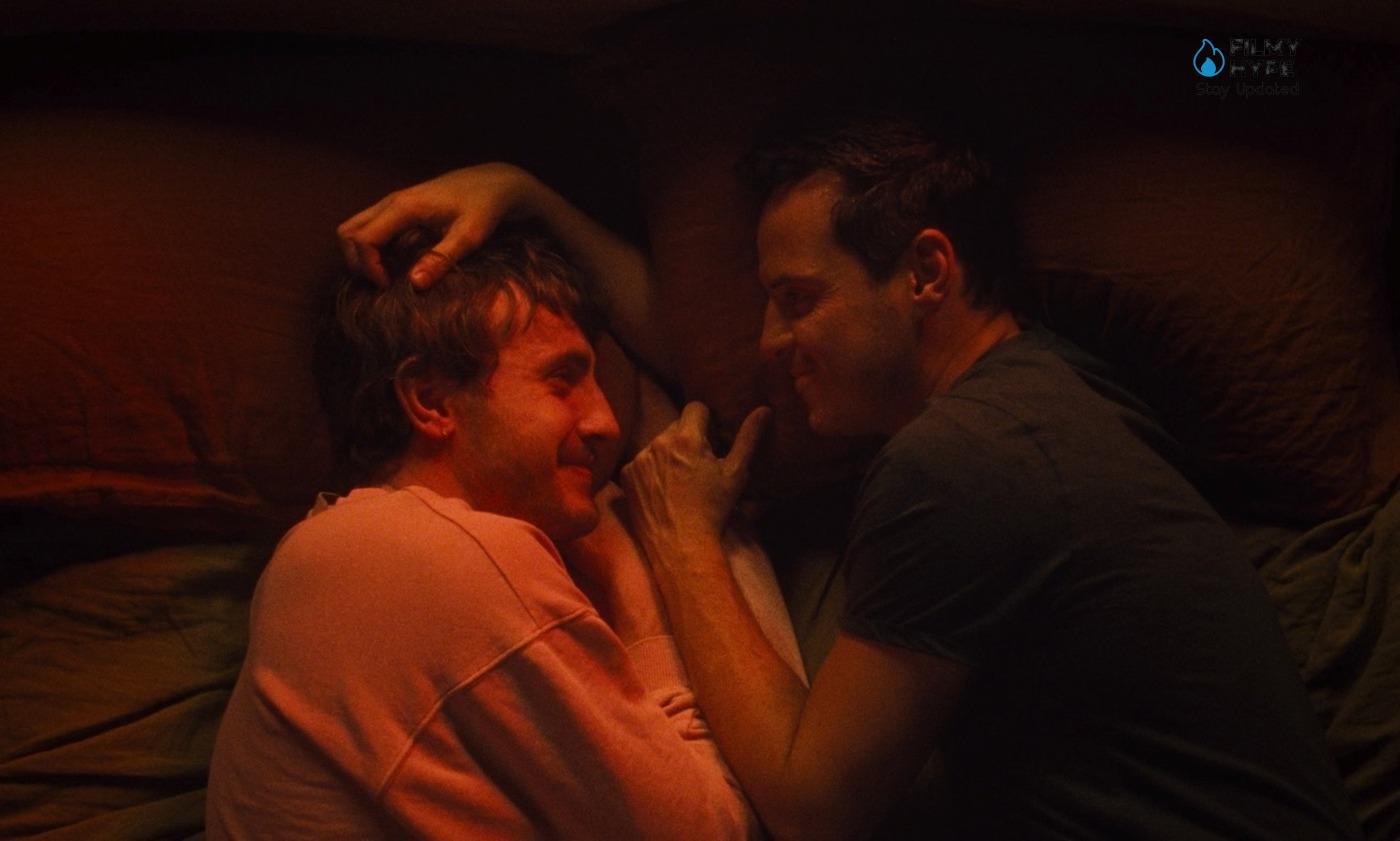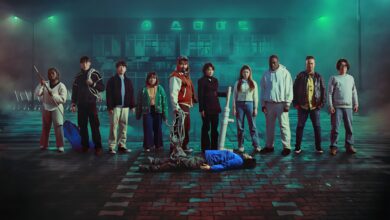All of Us Strangers: Why Andrew Haigh’s New Film Will Make You Fall In Love? A Heartbreakingly Emotional Ghost Story
In 2011, British filmmaker Andrew Haigh, author of All of Us Strangers, told the story of a young gay man who lives in an anonymous skyscraper and is in search of some kind of human connection. That film, Weekend, is a modern gay classic, discursive, melancholic, and sexy. Twelve years later, Haigh returns to a high-rise building, this time an empty luxury condo in London, for his new film — All of Us Strangers. In that building lives a gay man, Adam (played subtly but effectively by Andrew Scott), bored and aimless in middle age. He is a screenwriter who is struggling to start a project about his family but spends most of his time watching television and snacking late into the night. One day—as also happened in Weekend —a chance encounter brings Adam together with a handsome stranger, Harry (a scruffy, handsome Paul Mescal), who appears to be the only other tenant in this shiny new building. As his flirtation moves toward sex and romance, Adam also ventures into his past.
All of Us Strangers: A Heartbreakingly Emotional Ghost Story
Quite literally, in fact: when he visits his childhood home, perhaps seeking inspiration, Adam finds his parents there, as young as when they died in a car accident, perhaps the first and most significant confirmation that Adam’s life was destined to be lonely. All of Us Strangers —one of this week’s big releases— is a ghost story, sometimes terrifying, but otherwise presented in the tender and searching language of grief. Adam’s parents, played sensitively by Claire Foy and Jamie Bell, appear to have been waiting for their son to come home; They know nothing of his life and are eager to see and hear how he has grown. Just as Harry, back in the quiet of Adam’s apartment, asks him questions whose answers help complete the portrait of a man adrift in loneliness, an orphan who seems to have, at some point in adulthood, returned to lose your place.

This is a common sentiment among middle-aged people, but perhaps especially so—at least in Haigh’s argument—for gay people, whose very existence can isolate them from the comfortably accepted patterns and rhythms of the regular world. Being gay is no longer a lonely life, Adam insists to his mother when she suggests otherwise. At least, not like before. We don’t believe her when she says it, though; Not even he seems to believe it. All of Us Strangers, with its evocatively damning title, is about alienation, particularly perhaps for gay men of Haigh‘s age who grew up on a fault line of identity, as new progressivism, tolerance, and openness, attempted to free themselves from the horrors of the past.
Has Adam fallen through that crack? Not at all. But he balances on top of her, and he’s glad to have Harry’s hand, pulling him, however briefly or not, into the light of contentment, of self-acceptance. And yet she can’t shake her grief, for his parents and, in a sense, for the life they had hoped for him. The ease of heterosexual marriage and children and houses with gardens. Adam has lost friends because of that inevitability, perhaps partially explaining his rather empty existence in the city.
In considering these losses, both Adam’s quiet tragedy and a more inexpressible desolation, the film delves into abstraction. Andrew Haigh’s film whispers mystery: The fact that Adam’s parents have suddenly returned is not the only disturbing mystery in the film. Dream merges with reality as Emilie Levienaise-Farrouch ‘s discordant score rings, murmurs, and hums. The film‘s lush visual effects are jarringly offset by that disturbing soundscape and the harshness of the filmmaker’s ideas. (The new gem of queer cinema is a loose adaptation of the novel All of Us Strangers by Taichi Yamada; the gay narrative is all Haigh’s).
The impact of All of Us Strangers is likely to vary greatly depending on the viewer. With such a hopeless thesis, the film may seem terribly strange to some young people who, although they undoubtedly continue to suffer the blows of an often-hostile world, cannot fully identify with Adam’s internal struggle: his fear, his coded shame, his hermetic longing. Older viewers may run headlong into the film’s despondency, finding solace, even catharsis, in its haunting pain.
It is difficult work, heartbreakingly emotional but cold. The same was true of Haigh’s 2015 film 45 Years, in which a long and mostly happy marriage must be reevaluated when something like a ghost lightly emerges from the past. That film seeks deep feeling but is instead a fairly clinical study of human thought and behavior. The film has a similarly antiseptic quality. Despite its penetrating vision and the striking performances of Andrew Scott and Paul Mescal, its steamy sex scenes, and its devastating conclusions, the film operates at a distance, from behind glass. Perhaps because Haigh gives Adam so little anchoring to the realm of the real; much of the film is lost in melancholic reverie. All of Us Strangers is itself a kind of specter, imposing and terribly insistent but incorporeal, impossible to truly embrace and hold on too tightly for dear life.
Why Andrew Haigh’s New Film Will Make You Fall In Love?
Snubbed at the 2024 Oscars, and we would add unfairly, All of Us Strangers by Andrew Haigh finally arrives in Italian cinemas. Starring Andrew Scott and Paul Mescal, who once again manages to give substance to torments of the soul with great finesse, as well as Claire Foy and Jamie Bell, the film freely adapts the novel of the same name by Taichi Yamada, already brought to the cinema in 1988 with the Japanese film The Discarnates. Strangers is a dreamlike journey between past and present that reflects on the meaning of memory and memories – even the most painful ones, but above all on that sense of loneliness and alienation that silently creeps into the din of our lives, so connected but at the same time so detached. from the world.
The Power of Love
All of Us Strangers is a love story. Adam is a screenwriter in crisis who unexpectedly finds himself involved in a relationship with a young neighbor (Paul Mescal) while trying to resolve the relationship with his parents – who died years earlier in a car accident, but who he manages inexplicably to see. In a depersonalized London and never so similar to any neighborhood in any other city around the world, Adam tries to find himself in the eyes of those he loves to try to make peace with the past but also to try to build a future for himself, abandoning that sense of alienation that makes him emotionally detached but at the same time eager to be loved.
Adam’s search for love is nothing more than an escape from an external reality stripped of a human dimension that he manages to find in the memory of the past and in a love that, in his eyes, could open the doors of reality, barring those of illusions. The same ones allow the protagonist to see his parents manifest, with whom he finds a sense of family in a non-existent space-time, as well as to establish a perfect relationship without being able to look beyond the dream. This is why it is fascinating that the last frame of the film coincides with the first of the video clip for The Power of Love by Frankie Goes to Hollywood, a leitmotif of the film that connects to another important theme that is touched on by Stranei: that of loneliness.
All of Us, Strangers
The sense of alienation and, consequently, the loneliness of the protagonist which is projected in the – more or less real – search for bonds is the fulcrum of Andrew Haigh’s film. The director therefore reworks the original material while maintaining its elements, some characteristics, and even the title to communicate something different to us. While Yamada’s novel reflects on loneliness and constructs a ghost story with elements typical of its culture of reference, Haigh’s film has no ambitions of wanting to be a proper ghost story. The presences with which Adam interacts, real or presumed such, become a narrative ploy to deepen, on the one hand, that need for love that we have already spoken about and, on the other, loneliness from which it is sometimes difficult to escape or from which you want to go out.
A sort of fatal cradle which, even just for a moment, can be more attractive than a daily life of frayed and shallow bonds. In light of this, we believe it is a great shame that such a story has been so little considered during this award season, but it is further proof that yes, awards matter but they are not able to tell us everything. Not even a film like this describes well certain dynamics that are both timeless and so specific to today. Like a pendulum that swings between life and death, between love and solitude, All of Us Strangers in fact talks to us about ourselves: more and more detached and tired of tormenting ourselves, but at the same time so eager to (re)find a bit of ourselves in the reflection of someone other.





